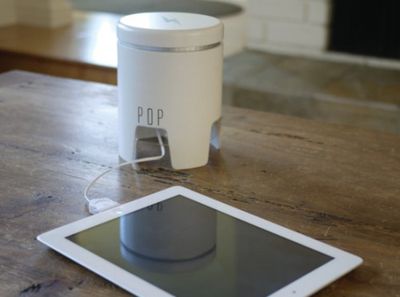Kickstarter project POP, a portable power station, has been shut down by Apple, after the Cupertino-based company refused to license its Lightning charger to Edison Junior, the design lab behind the product.
POP, which was tagged by the creators as "The Intersection of Charging and Design" aimed to combine a variety of charging cables into one product, including the Lightning connector, Apple's 30-pin connector, and a micro-USB connector for charging non-Apple devices.

Edison Junior CEO Jamie Siminoff spoke to VentureBeat and had this to say about Apple's decision:
We are pissed. I think they are being a bunch of [jerks], and I think they're hurting their customers.
The issue, it seems, was the use of a Lightning connector alongside a 30-pin connector, as Edison Junior explained in a note to Kickstarter backers.
When Apple officially announced the move to Lightning we determined the best course of action was to incorporate two Lightning chargers, and two 30-pins (along with the four micro-USB's). After applying to Apple (which is now required for Lightning), we learned that they are no longer willing to approve a product that uses the Lightning charger alongside any other charger (including their own 30-pin – seriously). Just like that, POP could no longer fulfill its true promise.
Edison Junior is planning to provide full refunds to all of its 1,000 backers, who pledged a total of $139,170, even though it will cost the company more than $11,000 in Kickstarter and credit card fees. The company is hoping to recover some of the cost from Kickstarter, which does not have a mechanism for refunds, forcing Edison Junior to seek help from their own crowdfunding site, Christie Street.
According to Siminoff, Edison Junior plans to continue developing a similar product that will indirectly support Apple iDevices with a Lightning-to-USB connector or a 30-pin connector.
























Top Rated Comments
or use a hacked up lightning port
"Hi, we're the idiots who sold something we didn't have the right to. Feel bad for us?"
Something smells fishy there, and I think they probably ran into other problems, either from a logistical, design, and/or supply perspective.
I don't buy their excuse.